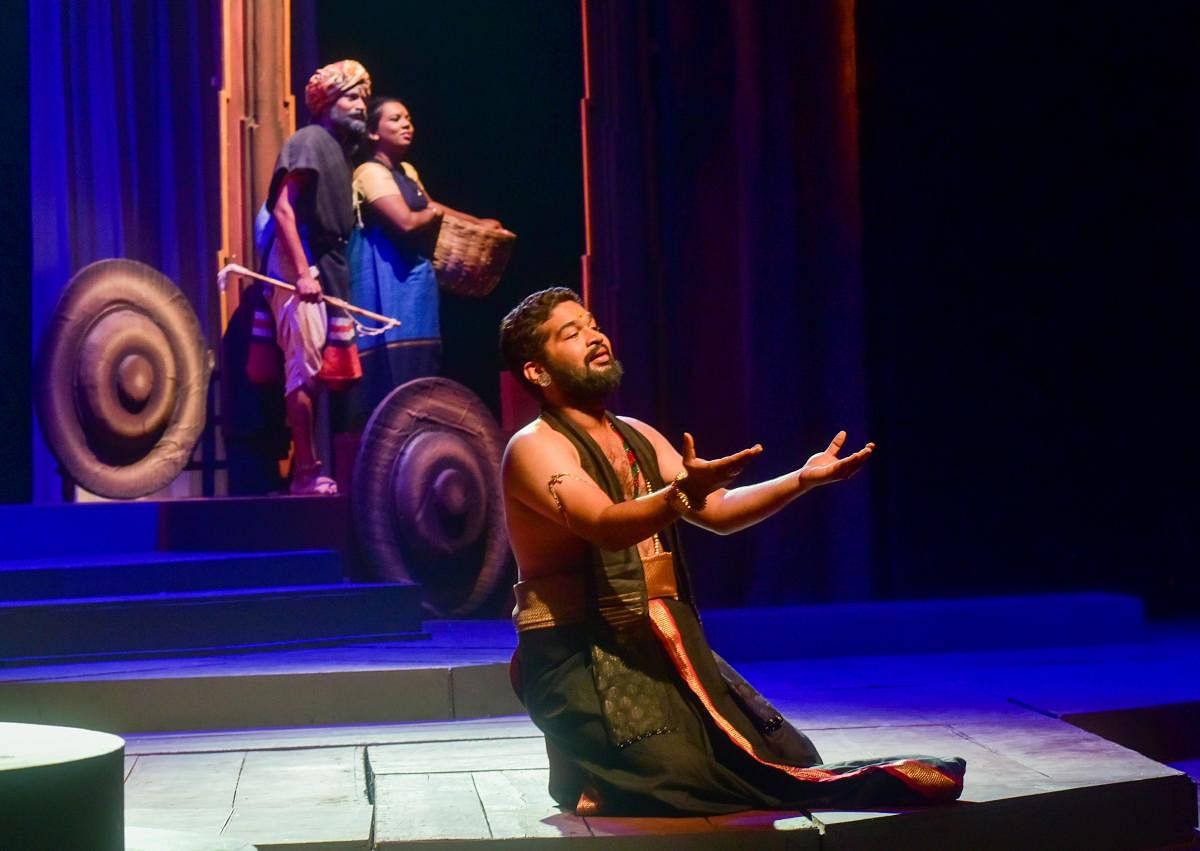
S L Bhyrappa's literary magnum opus 'Parva' has found a stage adaptation 42 years after its publication. Prakash Belavadi has turned the novel into a six-hour play. The production comes from Rangayana, the state government-run repertory based in Mysuru.
'Parva' narrates the story of the Mahabharata through a series of soliloquies. Principal characters of the great epic — Kunthi, Draupadi, Bheema, Karna, Vidura and others — remember almost their entire lives at the onset of the Kurukshetra war. An Indian epic turned into a modern novel has now become a gripping play. In the process, the work offers new perspectives on the dilemmas of war and peace and dharma and adharma.
The play is a visual treat and a new experience even for those who have read the novel. Bhyrappa’s dialogue, a highlight in the novel, is also a highlight of the stage performance.
Director Belavadi's talent shines throughout the play, especially in the portrayal of the war scenes. Among the more memorable scenes are Krishna mediating before the war, the victorious Pandavas returning to king Dhritarashtra and his wife Gandhari, Karna’s emotional exchange with his mother Kunthi, the death of grand old Bheeshma, and Dronacharya talking to Duryodhana about war strategies. Especially telling is Sanjaya’s reportage of the killing of Abhimanyu's to the blind king.
Coming to the performances, the monologues of Kunthi (essayed by K R Nandini; she reminds theatre buffs of B Jayamma and B Jayashree) deserve special mention, while Hulugappa Kattimani, as Duryodhana, steals the show. He also plays the role of sage Krishna Dwaipayana 'Vyasa'. Pramila Bengre as Gandhari, Anurag S as Karna, Rajesh Madhavan as Bheema, Vijay Karthik as Dhritarashtra, Jagadish Manavarthe as Drona, Prashanth Hiremath and Nandakumar G K as Sanjaya and Vinayak Bhat Hasanagi as Vidura deliver solid performances. At times, the conversations between Sanjaya and Dhritarashtra evoke laughter.
The sets, lighting and costumes (mainly in black by Prasada Bidapa) create a sombre mood and work effectively with the music. The chande drumming stands out. In some scenes, the music is overpowering and drowns out the dialogue.
Although the play is loyal to the literary work, it leaves out some important scenes. For example, the novel describes how the Panchala princess convinces Draupadi to take her five sons as husbands, but the play skips that episode, perhaps because it is already six hours long.
Parva has four breaks, and it comes after a year and a half of little or no theatre activity. It is a worthy effort marked by sterling performances.
The play was staged last week at Ravindra Kalakshetra in Bengaluru after 15 successful shows in Mysuru between March and October.